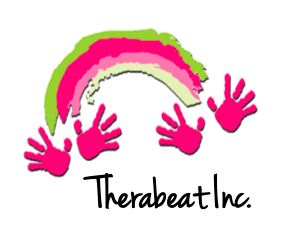The population of people who suffer from dementia range from age 65 and older (Keough et al., 2017, p. 182). Previous studies have shown positive linkages between implemented music therapy sessions and positive outcomes amongst patients with dementia.The use of music therapy has increased with this population due to research showing positive patient outcomes. Music therapists utilize music as a tool to connect with individuals with dementia to a subjective state of reality. Statistics demonstrate that approximately five million people possess a form of age-related dementia (Keough et al., 2017, p. 193). Universally, this number is much larger, ranging from 35 to 48 million people (Shibazaki, 2017, p. 468). Worldwide, those diagnosed with dementia require over $818 billion in treatment and care (Shiltz et al., 2019, p. 17). Thus, efforts to combat the detrimental and expensive condition are an urgent necessity.
Dementia is a syndrome that psychologically “affects memory, thinking, orientation, comprehension, calculation, learning capacity, language and judgement” (McDermott et al., 2018, p. 256). Clinically-accepted symptoms of dementia include memory loss, inability to perform simple tasks, personality and behavior changes, and increased levels of agitation (Shibazaki, 2017, p. 468). Such behavioral and psychological symptoms appear in more than 80% of diagnosed dementia patients (Shiltz et al., 2019, p. 17). However, even as the human memory disappears, musical skills and the processing of music are amongst the last to leave (Shibazaki, 2017, p. 268).
Studies have shown that increased exposure to music can increase development of one’s neural network functioning, steady the heart rate, decrease blood pressure, reduce high hormonal stress levels and inflammatory cytokines, and provide decrease in pain levels (Sorrell, 2018, p. 15). Music therapy utilizes diverse, therapeutic interventions that can include singing, playing instruments, listening to music (live or prerecorded), creating music, socializing, communicating and expressing (Shiltz et al., 2019, p. 18). Common goals that are targeted in music therapy sessions for older adults can include improving quality of life, increasing positive self-identity, enhancing social experiences, and improving communication (Schall, Haberstroh, & Pantel, 2015, p. 113).
A recent study that specifically analyzed music with dementia, “Music as a Healing Art in Dementia Care,” states that individuals diagnosed with dementia have the ability to retain their clearest memories from the music. Specifically, music that they preferred between the ages 10 and 30 (Sorrell, 2018, p. 16). Music therapists are able to provide a space for engagement and progress in clients through music therapy sessions. For example, research demonstrates that clients with dementia who have been provided music therapy sessions stimulated by active music engagement and active music listening had a high increase of positive social participation (Keough et al., 2017, p. 183). A study, by Ridder and Gummensen that explains the process of music therapy treatment and its benefits on those with dementia, shows improved socialization skills through increased eye-contact and increased initiation to socialize or express personal thoughts (2015, p. 7). Communication is another positive effect from music therapy with this population. Studies have provided evidence that music therapy treatment has improved retention of speech, language (Sorrell, 2018, p. 16), and improvement in breaking repetitive speech behavior (Keough et al., 2017, p. 186). Another impactful category researched to show positive effects is the improvement of mood and quality of life. Music therapy decreases anxiety and depression, and minimizes symptoms of agitation and aggression (Sorrell, 2018, p. 16). These are a few of the many studies that provide clear evidence to show positive effects of music therapy on adults with dementia.
Music therapy sessions with clients who have dementia can focus on social skills, reality orientation, general quality of life, or client-specific needs (Keough et al., 2017, p. 183). Sessions can include musical improvisation to create dialogue for communication (Ridder & Gummesen, 2015, p. 6), group activities, such as singing, group drumming, and movement activities to improve socialization skills (Keough et al., 2017, p. 183), and utilizing musical instruments as a means of communication to enhance daily skills (Shiltz et al., 2019, p. 18). These are several examples that show what music therapy can provide in sessions, however there are endless interventions music therapists can implement to meet needs.
While dementia is a devastating condition in the population of older adults, these individuals are positively affected by the music interventions that music therapists create to alleviate symptoms of dementia and tasks that provide the practice of healthy coping mechanisms.
-Hanlee McCart, Music Therapy Intern
References
Keough, L. A., King, B., & Lemmerman, T. (2017). Assessment-based small-group music therapy programming for individuals with dementia and Alzheimer’s disease: A multi-year clinical project. Music Therapy Perspectives, 35(2), 182–189.
McDermott, O., Ridder, H. M., Baker, F. A., Wosch, T., Ray, K., & Stige, B. (2018). Indirect Music Therapy Practice and Skill-Sharing in Dementia Care. Journal of Music Therapy, 55(3), 255–279. https://doi.org/10.1093/jmt/thy012
Mette Ridder, H., & Gummesen, E. (2015). The use of extemporizing in music therapy to facilitate communication in a person with dementia: An explorative case study. Australian Journal of Music Therapy, 26, 6–29.
Schall, A., Haberstroh, J., & Pantel, J. (2015). Time series analysis of individual music therapy in dementia: Effects on communication behavior and emotional well-being. GeroPsych: The Journal of Gerontopsychology and Geriatric Psychiatry, 28(3), 113–122. https://doi.org/10.1024/1662-9647/a000123
Shibazaki, K., & Marshall, N. A. (2017). Exploring the impact of music concerts in promoting well-being in dementia care. Aging & Mental Health, 21(5), 468–476. https://doi.org/10.1080/13607863.2015.1114589
Shiltz, D. L., Lineweaver, T. T., Brimmer, T., Cairns, A. C., Halcomb, D. S., Juett, J., Beer, L., Hay, D. P., & Plewes, J. (2018). “Music first”: An alternative or adjunct to psychotropic medications for the behavioral and psychological symptoms of dementia. GeroPsych: The Journal of Gerontopsychology and Geriatric Psychiatry, 31(1), 17–30. https://doi.org/10.1024/1662-9647/a000180
Sorrell, J. M. (2018). Music as a healing art in dementia care. Journal of Psychosocial Nursing and Mental Health Services, 56(7), 15–18. https://doi.org/10.3928/02793695-20180619-04
